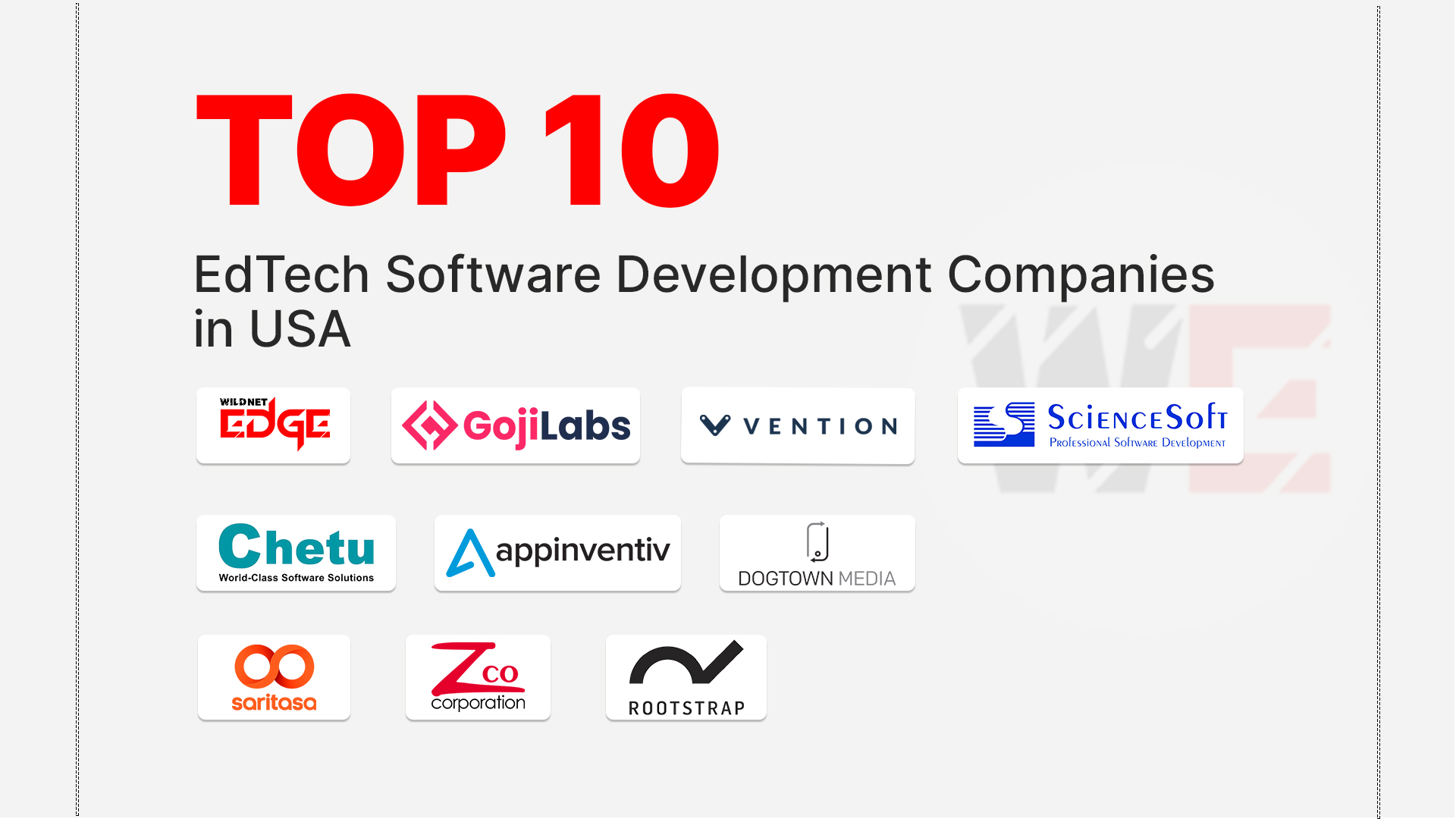In today’s fast-paced business landscape, companies face numerous challenges when engaging in B2B transactions, from managing complex orders and minimizing errors to enhancing customer satisfaction. These challenges often lead to delays and can impair the overall efficiency of operations. Enter B2B portal development: a digital solution specifically designed to streamline transactions and improve collaboration among businesses. But what exactly can B2B portals do for your organization? How can they address specific pain points in your current operations? In this article, we will explore ten compelling use cases of B2B portal development that can transform your business, providing real-world examples and potential roadmaps to success.
B2B Portal Development Use Cases: An Overview
B2B portals serve as centralized platforms where business partners can connect, collaborate, and transact seamlessly. These portals present multiple use cases that can significantly impact operational efficiency and customer satisfaction.
Streamlining Operations with B2B Portals
Operational friction can hinder growth and productivity in any organization. B2B portals combat this by simplifying processes such as order management, invoicing, and customer service. By automating routine tasks, businesses can save time and minimize costly errors.
- Automation Benefits: B2B portals can automate approval workflows, document exchanges, and status updates. For instance, instead of relying on email chains, a portal can track the progress of orders in real time. This immediate access reduces follow-up work and speeds up transactions, enabling businesses to respond quickly to customer needs.
- Reducing Manual Entry: Additionally, integrating a B2B portal with a company’s ERP systems reduces the need for manual data entry, which is often a source of errors. By centralizing data access, businesses can ensure accuracy and save time.
Enhancing Customer Experience via B2B Portals
One significant value of B2B portal development lies in enhancing the customer experience. When partners feel that their needs are being prioritized, satisfaction, loyalty, and retention rates increase.
- User-Friendly Interfaces: A well-designed portal offers a user-friendly interface that provides customers with easy access to essential functionalities, such as placing orders or accessing support. Companies like Alibaba utilize intuitive dashboards that facilitate seamless navigation.
- Real-World Example: A study conducted by Forrester Research found that businesses that invested in customer experience improvements, including B2B portals, saw a 10-15% increase in repeat business. By offering personalized experiences, suppliers can forge stronger relationships with customers.
B2B Portal Development Use Cases in Commerce
B2B portals have proven particularly influential in sectors involved in commerce, where complex transactions and multiple stakeholders are the norm.
Facilitating Complex Transactions with B2B Portals
The complexity of B2B transactions is one of the biggest hurdles to overcome. B2B portals can handle intricate trade agreements that often involve various stakeholders and conditions.
- Managing Invoices and Contracts: B2B portals simplify the process of managing contracts and invoices. With access to a centralized document repository, partners can quickly retrieve necessary information, mitigating delays caused by lost or unorganized records.
- Efficiency in Handling Trade Agreements: By facilitating real-time negotiations and amendments to contracts online, businesses can enhance collaboration and agreement efficiency, ultimately speeding up the procurement process.
Examples of B2B Commerce Success Stories
Successful implementations of B2B portals in commerce illustrate their potential to drive significant business outcomes.
- Case Study: Amazon Business: Amazon Business has integrated a comprehensive B2B portal that allows organizations to create multi-user accounts, access business pricing, and manage procurement workflows. According to Amazon, organizations reported up to 25% cost savings through increased purchasing efficiency.
- Case Study: Staples: Staples’ B2B portal has transformed the way businesses manage office supplies. Their integrated purchasing system offers bulk discounts and easy ordering, resulting in increased sales from business clients by up to 20% after portal implementation.
B2B Portal Development Use Cases in Manufacturing
The manufacturing industry is another domain where B2B portal development plays a critical role, particularly in optimizing supply chains and improving communication among partners.
Optimizing Supply Chains with B2B Portals
B2B portals enhance supply chain transparency and tracking, which are vital for manufacturers to meet customer demands.
- Enhanced Visibility: By offering real-time updates on inventory levels, production schedules, and shipment tracking, B2B portals provide companies with the transparency required to make informed decisions. This real-time data allows manufacturers to respond promptly to supply chain disruptions.
- Collaborative Platforms: These portals act as collaboration hubs for manufacturers and suppliers, enabling them to synchronize their processes. For instance, if a supplier is running low on materials, they can immediately notify manufacturers, minimizing potential downtimes.
Industry Examples of B2B Portal Development in Manufacturing
Several manufacturing firms have successfully harnessed the power of B2B portals to improve their operations.
- Example: Siemens: Siemens leverages a robust B2B portal that connects various stakeholders, allowing them to track project progress and update requirements in real time. This platform has resulted in a 30% reduction in project delivery times.
- Example: Bosch: Bosch manufactures everything from automotive components to household appliances and used B2B portals to enhance communication with their suppliers. The outcome was reduced lead times by 15% and improved operational efficiency.
Leveraging a Software Development Company for B2B Portals
Developing a successful B2B portal is a significant undertaking that often requires specialized expertise.
Selecting the Right Software Development Company for Your B2B Portal
When looking to partner with a software development company, consider several key factors to ensure successful portal development.
- Experience and Portfolio: Evaluate potential partners based on their experience in B2B portal development. Familiarity with industry-specific needs and previous successful projects can be indicative of their capability.
- Technical Expertise: Look for companies proficient in relevant technologies and platforms. A company that stays updated with the latest trends, such as AI and machine learning, is crucial as these technologies are increasingly integrated into modern B2B portals.
Successful Projects by Leading Software Development Companies
Many leading software development companies have delivered exceptional B2B portals, showcasing their impact on clients’ businesses.
- Example: Wildnet Edge: As an AI-first company, Wildnet Edge specializes in custom B2B portal solutions that aim to enhance operational efficiency and customer engagement. Their projects often include features like AI chatbots for support and analytics dashboards for performance tracking, significantly enhancing user experience.
- Example: Intellectsoft: Known for its focus on enterprise solutions, Intellectsoft developed a cross-platform B2B portal that integrates with existing systems to streamline procurement processes, yielding a 40% increase in efficiency for their clients.
B2B Portal Development Use Cases in E-commerce
E-commerce remains a rapidly expanding sector where B2B portals can revolutionize interactions between businesses and their suppliers.
Transforming E-commerce with B2B Portals
B2B portals in e-commerce offer unique features that cater to business-specific transaction needs.
- Bulk Transactions and Tailored Offers: Unlike traditional e-commerce platforms, B2B portals often support bulk orders and provide tailored pricing options based on customer relationships and purchasing history. This increased flexibility makes it easier for businesses to manage their purchasing expenses efficiently.
- Streamlined Payment Processes: These portals can offer a range of payment options tailored to B2B buyers, making transactions as simple as possible. This added convenience often translates into higher sales conversion rates.
E-commerce Industry Examples of B2B Portal Use Cases
Several e-commerce companies have successfully integrated B2B portals into their operations, resulting in improved customer engagement and satisfaction.
- Example: Alibaba: Alibaba’s B2B platform caters to millions of businesses worldwide, supporting intricate supply chain logistics and bulk buying, which has streamlined supplier relationships and boosted global trade.
- Example: ThomasNet: A leading B2B e-commerce platform, ThomasNet facilitates connections between suppliers and buyers, supporting multiple quote requests and enhancing procurement efficiency for manufacturers and service providers.
Mobile App Development for B2B Portals
In an increasingly mobile-focused world, integrating mobile solutions into B2B portals is becoming more critical.
Integrating Mobile App Development with B2B Portals
Mobile-friendly B2B portals not only enhance accessibility but also optimize user engagement.
- Importance of Mobile Accessibility: With a significant percentage of B2B transactions now taking place via mobile devices, companies must ensure their portals are accessible and easy to navigate on smartphones or tablets.
- Seamless Integrations: Integrating mobile app development with B2B portals can enhance features like push notifications for updates, mobile invoicing, and real-time support, making transactions more efficient for users.
Examples of Successful Mobile App Development in B2B Portals
Many organizations have developed mobile applications that augment their B2B portals, further enhancing functionality.
- Example: SAP Ariba: Known for its procurement solution, SAP Ariba offers a mobile app that extends the functionalities of its B2B portal, allowing users to manage orders, approvals, and invoices on the go, resulting in increased user engagement and satisfaction.
- Example: Coupa: Coupa provides a mobile application that integrates with its B2B procurement portal, allowing users to conduct business from anywhere. Statistics show a 30% increase in order processing speed due to mobile solutions being implemented.
Future Trends in B2B Portal Development
As technology continues to evolve, B2B portals will also adapt to integrate innovative features that will vastly improve functionality and user experience.
Innovative Features to Expect in B2B Portals
Future B2B portals are set to include an array of innovative features driven by emerging technologies.
- AI and Machine Learning: As AI continues to develop, expect to see more predictive analytics that will help businesses make smarter decisions based on past transactions and trends. These informative insights can anticipate customer needs and streamline transactional processes.
- Enhanced Security Features: With the rise of cyber threats, future B2B portals will likely incorporate advanced security measures such as biometric authentication and end-to-end encryption to protect sensitive data.
The Role of B2B Portals in Digital Transformation
B2B portals play a pivotal role in companies’ digital transformation journeys. They facilitate online capabilities that drive operational efficiency.
- Impact on Business Strategies: By integrating B2B portal development within broader digital strategies, businesses can achieve significant efficiency improvements across operations, from order fulfillment to customer support.
- Link to Business Efficiency: The automation and optimization capabilities of B2B portals contribute strongly to overall business efficiency, helping organizations stay competitive in their respective industries.
Conclusion
B2B portals offer numerous use cases that can revolutionize how businesses interact, transact, and collaborate. From streamlining operations to enhancing customer experiences and optimizing supply chains, the versatility of B2B portals is evident. If you are considering implementing a B2B portal, look no further than Wildnet Edge, an AI-first company that specializes in developing effective and tailored B2B solutions. Embrace the digital shift and position your business for future growth today.
FAQs
B2B portal development involves creating online platforms that facilitate business-to-business transactions and collaboration.
Common use cases include procurement, order management, and customer relationship management.
A software development company offers expertise in building customized solutions, ensuring your B2B portal meets specific business needs.
A mobile app development company creates mobile interfaces for B2B portals, enhancing accessibility and user engagement.
Yes, successful examples include companies like Amazon Business and Alibaba, which use portals to streamline B2B transactions.

Managing Director (MD) Nitin Agarwal is a veteran in custom software development. He is fascinated by how software can turn ideas into real-world solutions. With extensive experience designing scalable and efficient systems, he focuses on creating software that delivers tangible results. Nitin enjoys exploring emerging technologies, taking on challenging projects, and mentoring teams to bring ideas to life. He believes that good software is not just about code; it’s about understanding problems and creating value for users. For him, great software combines thoughtful design, clever engineering, and a clear understanding of the problems it’s meant to solve.
 sales@wildnetedge.com
sales@wildnetedge.com +1 (212) 901 8616
+1 (212) 901 8616 +1 (437) 225-7733
+1 (437) 225-7733















 ChatGPT Development & Enablement
ChatGPT Development & Enablement Hire AI & ChatGPT Experts
Hire AI & ChatGPT Experts ChatGPT Apps by Industry
ChatGPT Apps by Industry ChatGPT Blog
ChatGPT Blog ChatGPT Case study
ChatGPT Case study AI Development Services
AI Development Services Industry AI Solutions
Industry AI Solutions AI Consulting & Research
AI Consulting & Research Automation & Intelligence
Automation & Intelligence













